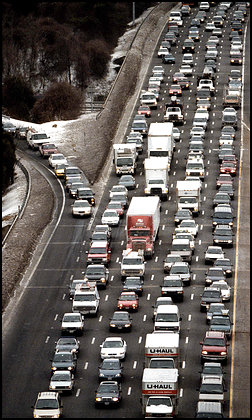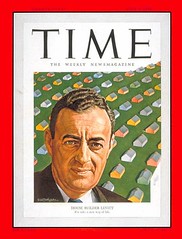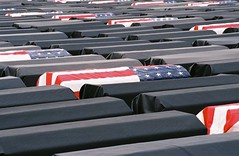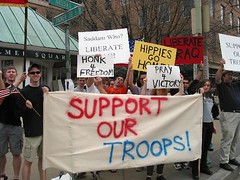Iraq's oil: The spoils of war
This isn't a blog entry directly relevant to the topic, although automobile centric and dependent sprawl--which has been supported by various federal and state policies over the decades--causes extreme deprivation of most of the center cities in the United States by dispersing businesses and residents far from the core, wasting the value of what remains. Maintaining access to relatively cheap oil to continue to enable the sprawl development paradigm shapes a goodly portion of U.S. economic and foreign policy.
This article from the Independent (UK/London), on "Iraq's oil: The spoils of war ," discusses plans to award ownership interest in the Iraqi oil system could cost the country upwards of $200 billion of the value of this declining and depleting resource.
 Beltway in Virginia. Washington Post photo.
Beltway in Virginia. Washington Post photo.
 William Levitt created the first real large scale subdivision communities after World War II, first on Long Island, then in the suburbs of Philadelphia.
William Levitt created the first real large scale subdivision communities after World War II, first on Long Island, then in the suburbs of Philadelphia. Dead American military personnel returned from Iraq. The global is local.
Dead American military personnel returned from Iraq. The global is local.
 Princeton College Republicans support our troops.
Princeton College Republicans support our troops.The best way to "Support our troops" is to repopulate and revitalize the center cities, to reduce U.S. economic dependence on automobility and gasoline.



0 Comments:
Post a Comment
<< Home